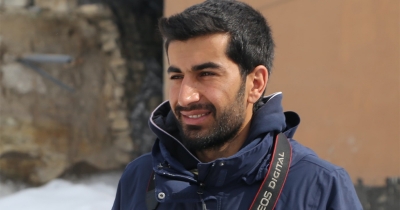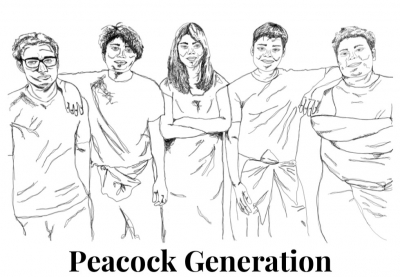PEN
Living in Shanghai late last year, I found myself one evening around a banquet table with a large group of expats – writers, journos, academics – in one of the city’s pricier Chinese restaurants. I don’t remember how the conversation steered toward Cuba and Castro, but, before long, there were coos of admiration and toasts to the hero of the Cuban revolution.
... (read more)In 2016, journalist Nedim Türfent reported on police brutality in Turkey. He subsequently received death threats and was put on trial by the Erdogan government on trumped-up charges. Despite witnesses at his trial confessing that they were tortured into giving false testimony, Türfent was sentenced to eight years and nine months in prison for supposedly ‘spreading terrorist propaganda’. As part of this sentence, he has spent almost two years in solitary confinement, in harrowing conditions.
... (read more)In her acceptance speech for the 2004 Sydney Peace Prize, writer Arundhati Roy suggested that ‘there’s really no such thing as the “voiceless”’. There are only the deliberately silenced, or the preferably unheard.’ Framed around the topic of justice, Roy’s lecture invited listeners to think about the mechanisms of power that stifle voices of dissent, those that push against political systems designed to erode fundamental human rights. Roy’s statement resonates because it implies that there is an element of choice in how we respond to cases of oppression. It is a choice not just for authorities but for communities and individuals alike.
... (read more)Asiye Guzel Zeybek – a Turkish journalist, editor and author of Rape under Torture (1999) and Our Cakir: The Life of a Revolutionary (2001) – was arrested on 27 February 1997, together with nineteen other colleagues. Zeybek, now thirty-three years old, is an executive board member of the Istanbul Branch of the Progressive Journalists’ Association, and also editor-in-chief of Atilin. She was specifically accused under Article 168 of the Turkish Penal Code, and subsequently convicted for her association with the now banned Marxist-Leninist Communist Party. Zeybek’s legal counsel staunchly rebutted the prosecutor’s allegations of her involvement in any violence.
... (read more)Nyima Drakpa, a twenty-nine-year-old Tibetan monk, died on 1 October 2003. PEN believes that his death was caused by beatings he received at the Tawu County Public Security Detention Centre, in the Kardze region of Tibet. Following his arrest in May 2000, authorities severely beat Nyima Drakpa in order to extract a confession for his alleged crimes. The head of the police team that recorded the confession was reportedly rewarded with a car for his ‘exemplary deed’. Nyima Drakpa was later sentenced to nine years’ imprisonment in a closed trial: his crimes were listed as ‘endangering state security’ and ‘incitement against the masses’.
... (read more)Since the beginning of 2003, nine writers and journalists have been murdered worldwide, adding to International PEN’s list of 400 who have been killed over the last ten years. In the same period, 769 other writers and journalists have been imprisoned, tortured, attacked, threatened, harassed and deported, or have disappeared, gone into hiding or fled in fear of their lives – simply for practising their profession.
... (read more)

